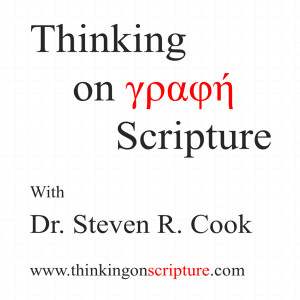
Saturday Jul 27, 2019
Micah 2:1-13
In Micah 2:1-5 the prophet sets forth God’s divine judgment upon the nation. It was the immoral behavior of God’s people who had no excuse for their criminal conduct. It was these who had been rescued from slavery in Egypt, brought into a special relationship with Him and given the light of His revelation. Those who should have modeled the highest and best behavior were, in fact, modeling the lowest and worst. Micah pronounced woe on those who scheme iniquity on their beds at night, then carry out their plans in the morning (Mic 2:1). This is likely a reference to the wealthy in Israel, since they had the means to execute their sinful schemes. They violated the eighth and tenth commandments, which forbid coveting and stealing (Ex 20:15, 17). More so, they violated the command to love their neighbors (Lev 19:18); sadly, it was the poor and their children who were being victimized (Mic 2:2). But God is Judge of all the earth, and He pronounces judgment upon these criminals, promising to bring calamity on those who have violated His covenant commands and to turn the land over to the Assyrians (Mic 2:3-5). Here, the Israelites were reaping what they had sown; for they had stolen the land of others, and God would bring the Assyrians to steal their land from them. Micah then turns his attention to false prophets in Israel who were leading God’s people astray and robbing citizens, soldiers, widows and children (Mic 2:6-11). These false prophets were trying to silence Micah (Mic 2:6a), as they had done his contemporaries (Isa 30:10; Amo 7:10-13). The false prophets did not like Micah’s message and wanted only to hear positive things related to God’s blessings, not His judgments. They were convinced God would not bring shame on them (Mic 2:6b). Micah then quotes his detractors, who say, “Is it being said, O house of Jacob: ‘Is the Spirit of the LORD impatient? Are these His doings?’” (Mic 2:7a). But Micah replied, “Do not my words do good to the one walking uprightly?” (Mic 2:7b). It was not Micah’s prophesies that were bringing judgment, but the people’s disobedience to God’s commands. By their choice, Micah’s audience was forfeiting the blessings that could be theirs, if they would only obey. Micah then names the sins that were being committed, namely robbing unsuspecting travelers, weary soldiers, and helpless widows and their children (Mic 2:8-9). Apparently, the majority of citizens were following the corrupt values of Israel’s leaders and embracing the feel-good messages of the false prophets. As a result, they would all go into exile because of the uncleanness of their sin which would bring on “a painful destruction” (Mic 2:10). Micah tells them if a preacher came preaching only positive messages of blessing, “he would be spokesman to this people” (Mic 2:11). Though Micah pronounces judgment to those who deserve it, he also provides a promise of future hope to the obedient remnant, that God will unite His dispersed people and be their good Shepherd Who will lead them into good pastures that they might enjoy the blessings of the land (Mic 2:12). Unlike the corrupt leaders of Micah’s day, God Himself will lead His people, saying, “So their king goes on before them, and the LORD at their head” (Mic 2:13). This will occur after Christ returns at His second coming and establishes His millennial kingdom on earth.
No comments yet. Be the first to say something!